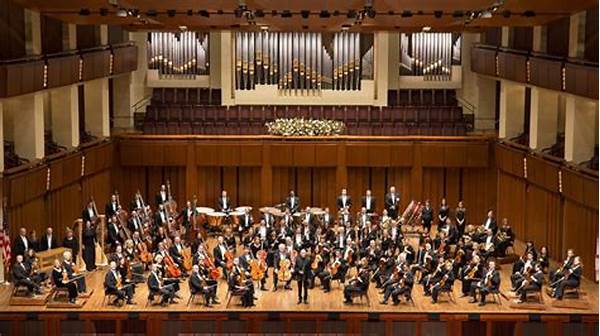Imagine walking into a grand concert hall, the lights dimmed, and a palpable sense of anticipation in the air. As the conductor raises their baton, you prepare to be swept away by a symphony of sound that can both inspire and enrapture. But amid this tapestry of music, there’s one particular musical instrument that never fails to dominate orchestral performances with its powerful tones. Its ability to command attention, evoke emotions, and elevate any composition to new heights is unparalleled. But which instrument could possibly wield such power and charisma?
Read More : The History Of The Bamboo Angklung In International Performances
In the world of music, there are many contenders, but the one that frequently rises above the rest in orchestral settings is the brass instrument known as the French horn. Its sound is a rich, golden timbre that can soar above the strings and woodwinds, and it can resonate with a warmth that envelops listeners. The French horn doesn’t just play notes; it tells stories, weaving narratives through its expansive range and dynamic capabilities. But what makes the French horn the true heavyweight champion of the orchestra, and why do composers trust it to lead the charge in their most triumphant scores?
The Power of the French Horn in the Orchestra
In the arsenal of musical instruments that dominate orchestral performances with powerful tones, the French horn is a force to be reckoned with. Nestled within the brass section yet commanding attention like a soloist, the French horn produces sounds that alternate between the heroic and the haunting. It’s this duality that makes it an irreplaceable asset in any orchestral ensemble.
A Versatile Instrument
The French horn’s versatility is one of its most significant selling points. Whether projecting the heroic themes of John Williams’ epic film scores or delivering the warm nostalgia in Brahms’ symphonies, the French horn can shift and adapt its tone to fit any narrative. This adaptability allows the French horn to evoke a wide range of emotions—its mellow tones can soothe, while its powerful crescendos can energize and invigorate.
Equally capable in a symphonic setting as it is in chamber music, the French horn embodies what every musician dreams of: an instrument with a soul. So, it’s no wonder that so many professional horn players describe their instrument with such affection, even humorously naming their horns.
Why Composers Love the French Horn
Composers have long been enamored with the French horn, crafting passages that highlight its ability to cut through a symphonic texture for profound, emotive statements. From the hunting calls depicted in Beethoven’s symphonies to the lamentuous solos in modern film scores, the French horn plays a pivotal role in storytelling. How did it win the hearts of so many great composers?
Historical Significance
The French horn has a rich history that traces back to the hunting horns of medieval Europe. Composers recognized the emotive potential of this instrument early on, and over centuries, it has developed into a mainstay within the orchestra. Its ability to convey a story through its tone is akin to the expressive range of a skilled vocalist.
Read More : Recommended Hybrid Synthesizer Instruments For Live Music 2025
Unique Mechanics and Mastery
The French horn’s design—a long coiled tubing with a flared bell and rotatable valves—allows for a vast palette of sound colors. Mastering the French horn, however, is no small feat. Widely regarded as one of the most challenging instruments to play due to its sensitive embouchure and complex fingering, it requires a dedication much like taming a wild beast. But once mastered, it unlocks narratives capable of stirring even the most reticent of audiences.
Unlocking the Secrets of the French Horn
Igniting passion and intrigue in musicians and listeners alike, the French horn continues to leave its mark through stunning performances and captivating compositions.
Conclusion: The Majestic French Horn
Music is not just an art form but an experience. With instruments like the French horn, audiences are not merely listeners—they’re participants in a story that unfolds with every note. This brass titan, characterized by its musical instrument that dominates orchestral performances with powerful tones, is not just a piece of metal shaped into an instrument; it’s an embodiment of human expression. Whether you’re a music enthusiast, an aspiring musician, or an avid concertgoer, next time you’re at a performance, let the spellbinding sounds of the French horn transport you to another realm—a world where sound becomes narrative, and the heart beats in time with the powerful tones echoing through the concert hall.
Now, it’s your turn; will you be the next to pick up the horn’s call, to experience and maybe even create its formidable music? The world of orchestral performance awaits your embrace of this audacious, yet endlessly rewarding, musical challenge.
